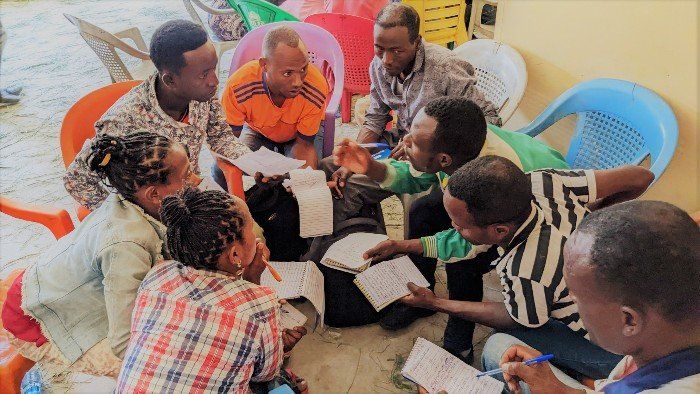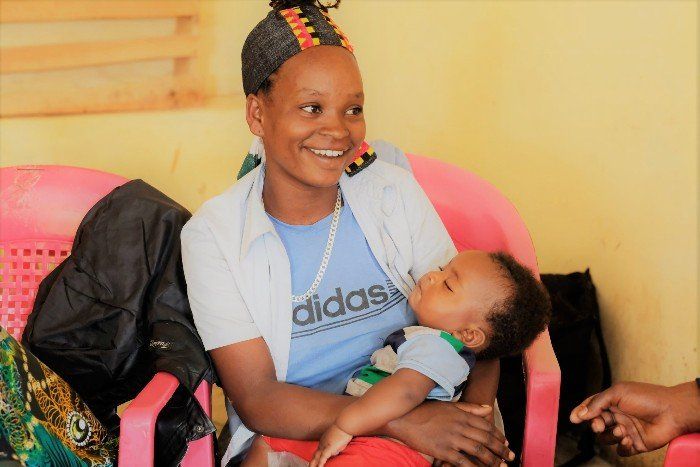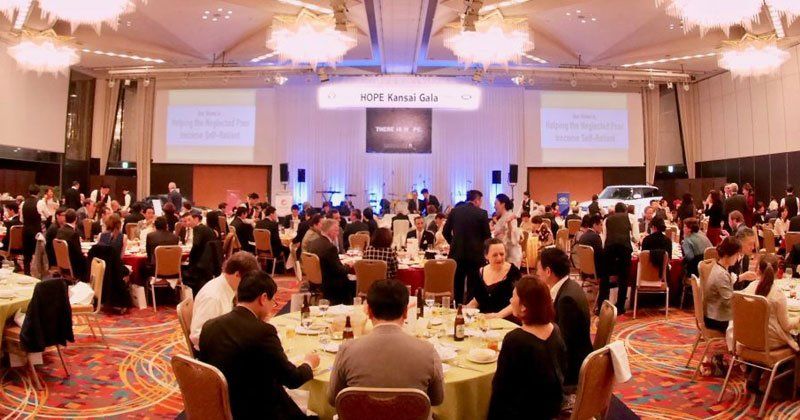A Step Towards Self-Reliance
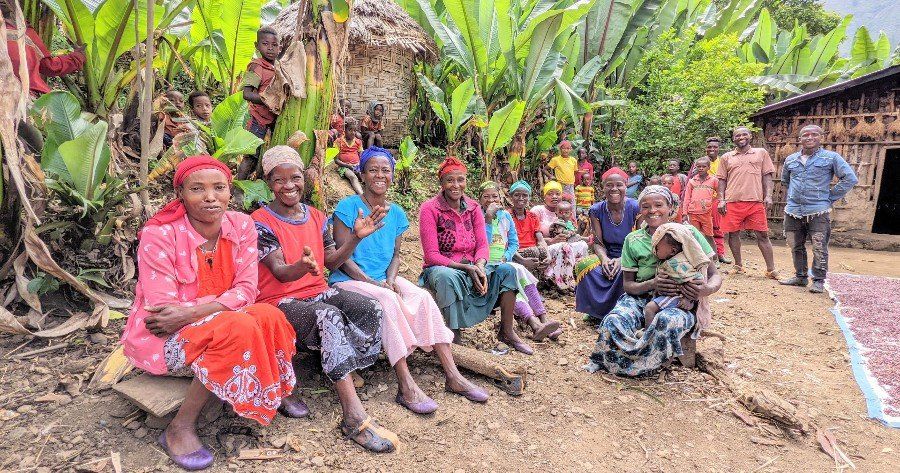
Training
In the middle of September, we held a 3-day training workshop to assist in the creation of Cluster Level Associations (or CLAs) for our SHG groups from all four wards of our project sites. About 50 participants attended including the newly elected CLA representatives and our own Community Field Educators from each ward, together with a few government officials from the wards, the Oyda District and from Gofa Zone.
CLAs - the power of the community
Our current project in Ethiopia is focused on empowering women through the construction of Water Systems in conjunction with the implementation of the SHG program, which is designed to provide its women members with loans so they can generate income through their own business activities.
Several SHG groups have been formed at each of the four wards that are covered by our current project, ranging from 8 groups to 17 groups per ward. While the members of each group (20 women on average) work with each other on a regular basis, there is not much exchange and interaction between groups within the same community. This is where the CLA comes in.
Many SHGs come together to form a CLA (Cluster Level Association), a cluster of SHG groups much like a cooperative, that can address and resolve problems that individual groups cannot do on their own. Each SHG group selects 2 representatives to the CLA, and subsequently, 5 leaders are selected to represent and lead their respective ward’s CLA.
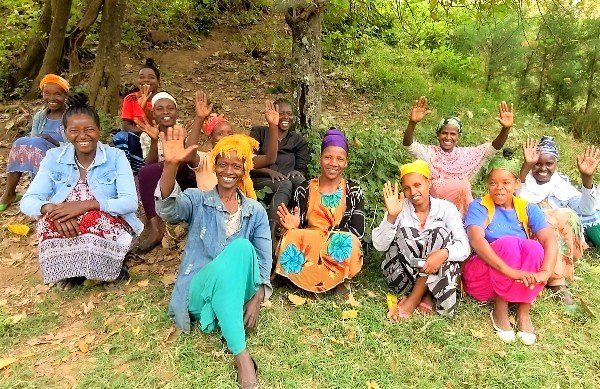
CLAs also help address the needs of the communities by mobilizing resources, help form new SHGs to lift more women out of poverty, help bring about new values and norms in their communities, and ensure the participation of women in the governance of their communities. In other words, while SHGs are focused at the level of the individual, that is, improving the wellbeing of its individual women members, CLAs are focused at the level of the community.
Workshop
To lead and conduct the workshop, we invited Tesfaye Telahun from Addis Ababa, a Capacity Building Manager for the SHG program, who has many years of experience with SHGs not just in Ethiopia but across several countries in East Africa.
The workshop was held in the town of Sawla, a two to four-hour walk for many of our participants from their respective wards. The first day kicked off with a review of the basics of SHGs, what they are, their purpose and roles, and an introduction to the basics of CLAs in the afternoon. The following two days covered several topics including the governance of CLAs, rules and regulations, selection and rotation of CLA representatives, record keeping, to name a few.
Some of the sessions required audience participation, such as for each ward mapping their respective village resources, analyzing their communities’ strengths and weaknesses, and creating action plans for their own CLAs to pave the way forward. Many participants eagerly posed questions, and provided feedback during each session.
Feedback
"I feel good," said Asegedech Mekuria, the CLA Chairwoman from Uba Yambala Ward. "We've learnt a lot, and we will teach and guide the SHGs in our community, and also use the manual that we were provided with."
"One of the topics I remember well was about the formation of new SHGs. There are other women in my community who want to join the SHG program, and we will support them and lead by example."
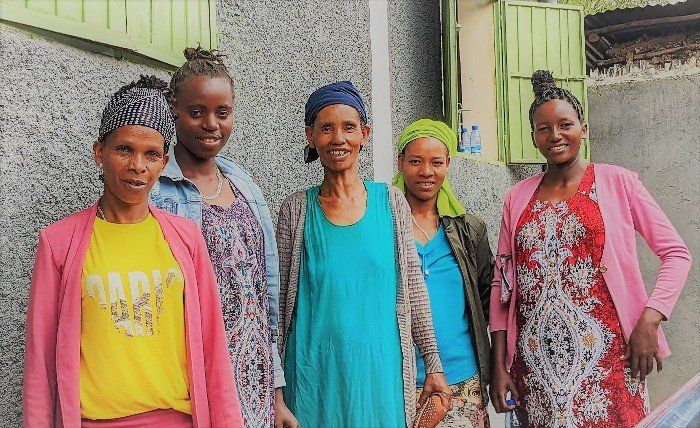
Uba Yambala Ward's CLA leaders
"Since we were able to meet with SHG members from the other Kebeles (wards), it was a good chance to share our experiences," said Meselech Matito, the CLA Cashier for Balta Ward.
"Many people in our community initially had mixed feelings about the SHG program, but thanks to Muluneh (HOPE’s Livelihood Officer) and Chorfo (HOPE’s Community Mobilizer for Balta), and of course through this workshop, I feel that our communities’ attitudes have changed since we have gained a lot of knowledge."
Muluneh, HOPE Ethiopia's Livelihoods Officer who leads the implementation of the SHG program, was very positive.
"The workshop was very good. Participation from the attendees was very high, and I felt that they were eager for the knowledge, and they have expressed their appreciation for this workshop many times in the last 3 days. Some women have claimed that they have never experienced this sort of thing before."
"I felt the workshop was received well," Tesfaye, the trainer, concluded. "Of course, how the SHGs and the CLAs develop from here is up to them but I am hopeful, and I would like to follow-up with them next year."
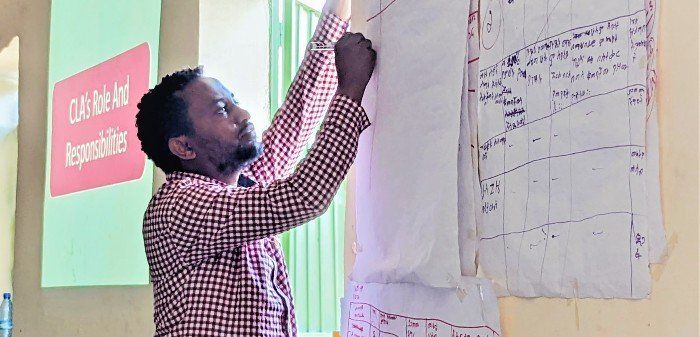
Tesfaye, the SHG specialist

